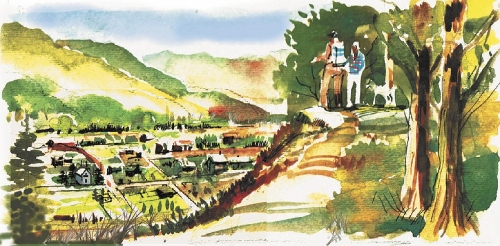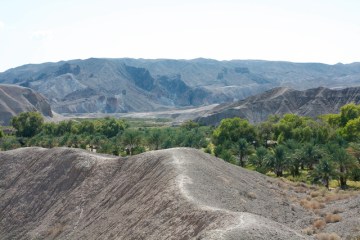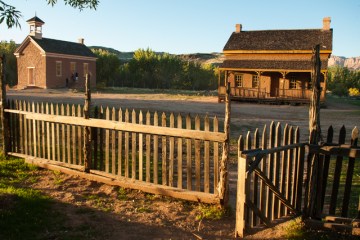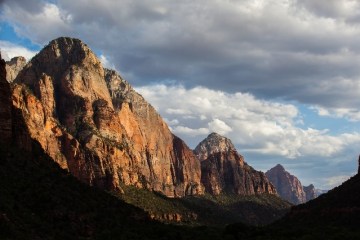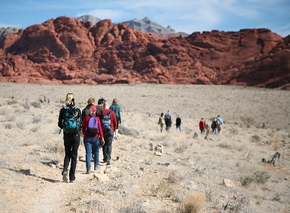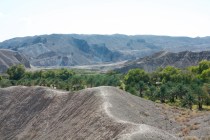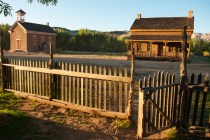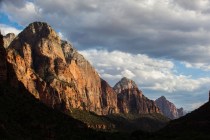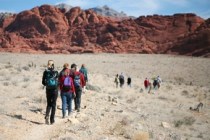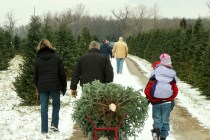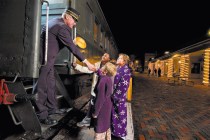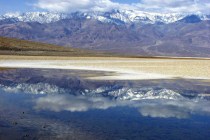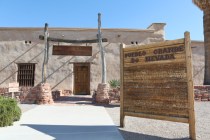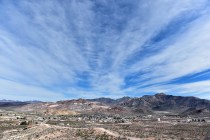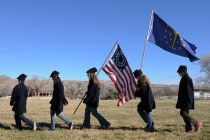Utah’s Pine Valley brims with scenery, history
Pine Valley remains a staple on the menu of scenic and historic attractions in Southern Utah. The valley offers year-round recreation, alpine scenery and glimpses into its pioneer past. Visitors this time of year witness the arrival of the color changes that transform fields and forests, a short-lived natural event that paints the wooded Pine Valley Mountains with swaths of brilliant color.
In a drive of less than three hours, Southern Nevadans can easily access Pine Valley, about 45 minutes from St. George, Utah. Follow Interstate 15 north to the Bluff Street exit in St. George, 120 miles from Las Vegas. Turn left and drive a few blocks to the junction with Utah Route 18. Follow this scenic highway 25 miles from St. George past Snow Canyon State Park to the turnoff at Central. From Central, a side road climbs 7 miles along the Santa Clara River to the pioneer-era village of Pine Valley. The road continues 3 miles into the mountains to reach the Pine Valley Recreation Area.
The approach to the community passes a cemetery dating from the town's beginnings in 1859, after cattlemen William Hamblin and Isaac Riddle discovered the hidden valley in 1855. The cemetery contains the graves of area pioneers marked by humble, weathered headstones as well as ornate monuments and statuary. Old cemeteries always hint at the hardships and hazards of frontier life.
The valley, with its natural pastures surrounded by 10,000-foot mountains covered with timber, was soon colonized by Mormon settlers. Riddle and two partners purchased a lumber mill in Salt Lake City to set up in Pine Valley in 1855. The mill hands lived in dugouts that first summer and built cabins the following year.
Before long, Pine Valley was producing logs, timbers, sawed lumber and barrel staves for a barrel-making enterprise. The stream furnished power for a gristmill for locally grown grain products.
In 1863, pioneer leader Erastus Snow, for whom Utah's Snow Canyon is named, bought the lumber operation with partners. Pine Valley supplied vital wood products all over Utah, including timbers used for the enormous pipe organ built inside Salt Lake City's famous Tabernacle.
Closer to the residential streets of the hamlet that arose near the little river, the beautiful white Pine Valley Chapel remains the architectural jewel of the region. Built in 1868, the structure is the oldest continuously used Mormon Chapel in Utah. Named in 1971 to the National Register of Historic Places, the chapel still has Sunday services and welcomes guests on daily guided tours.
Ebenezer Bryce, a Scottish ship builder for whom Bryce Canyon was named, was chosen as master builder on the Pine Valley Chapel. The building's foundation of locally quarried granite and red limestone supported a first-floor school and community hall, a second-floor chapel reached by twin outside stairs, an attic and a steep roof with a cupola. Visitors touring the sturdy building can see Bryce's design, a structure like a ship's hull turned upside down and able to withstand Pine Valley's heavy winters, as well as the heavy seas it would never encounter.
Tour the grid of streets marking the downtown of pioneer Pine Valley. Some blocks appear little changed since frontier days, although most of the original cabins were replaced with Victorian homes of mellow red brick accented with touches of lacy gingerbread. Today, new cabins and homes built for part-time residents drawn to the area's recreational attractions surround the village.
Beyond the town, the road climbs into the main recreation area with its cluster of Dixie National Forest campgrounds and access to a network of hiking and equestrian trails as well as all-terrain vehicle routes. This area fills up on weekends and holidays, especially in summertime. Reserve a campsite or plan for early arrival for best site selection. If campgrounds are full in upper Pine Valley, look for sites in smaller campgrounds downriver. Expect to pay $12 per night in most campgrounds. Summertime fishing, hiking, mountain biking, horseback riding and ATV exploring give way to cross-country skiing, snowshoe trekking and snowmobile touring when winter snows blanket the Pine Valley mountains.
Margo Bartlett Pesek's column appears on Sundays.



